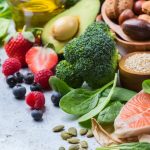This post has been a long time coming – for me. It’s filled with some good ‘ole science that I have gathered from various books, lectures, websites like this, and of course my partnership with Functional Medicine Practitioner Dr. Greg Symko. And I am putting it out there now because – well… so much has been negatively and incorrectly said for too long about gluten. Always the truth speaker, I thought I’d challenge the naysayers and spout a few truths!
People are so hung up on gluten free. The term is confusing and as I learn and read more about it, I realize how little people really understand about what gluten is, and why [I believe] it can affect everyone on some level. Because of all of the confusing information out there, once uttered, the term “gluten free” seems to elicit consistent negativity to what is perceived – still – to be a fad.
People are having a hard time getting “it”. And a recent article in Consumer Reports (The Truth about Gluten) has done nothing to help matters. It certainly gives you some truths about what to expect if you buy gluten free – like the often increased expensive with some items – but in terms of the health implications it has missed the mark – completely.
It is just another reason I want to clarify what it means to eat gluten free. And hopefully help to shift our mindset when thinking about why it’s important to eat this way.
There are many layered facts to help clarify and push the benefits of being gluten free. Here are just two:
1. Gluten is not part of our genetic makeup.
And it is basic human physiology that tells us why eating foods that don’t benefit our genetics can cause problems. Here is some technical stuff for you biology geeks: Because gluten, a protein, was never part of our genetic make up it impacts our human physiology negatively. Our body literally doesn’t recognize the protein and reacts accordingly. It creates a chemical reaction in the body that the body sees as a problem. And these reactions and stressors affect our genes; they affect them getting turned on which naturally affects how the body manages and does its job.
The food we eat today is different from the food we ate yesterday and the food our parents and grandparents ate.
And this is key. Over the years, that tall, flowing wheat that was introduced 10,000 years ago has been hybridized. It is different. The protein is physically longer. It has changed; which makes things worse. 10,000 years ago there were 2 varieties of wheat. Today there are over 25,000 varieties so it continues to get more and more unrecognizable to our body. And eventually, that catches up to us. When we eat the unrecognizable wheat, our genes tell our body to develop antibodies to protect from that invader. This happens over and over the more it sees an offender – creating stress in the body. It’s under the hood and sometimes we don’t “feel” the stress. But it’s there.
And that stress has created many-a-diseases. Today there are 24 million people with autoimmune disease (to the 9 million with cancer*) — which means they have a medical diagnosis. And there are over 230 million people who have autoimmunity — which means they have symptoms and issues that don’t rise to the level a medical doctor would say you have a disease. But they aren’t “well”. And it’s all preventable. {*source: Dr. Mark Hyman, The Online Autoimmune Summit}
Unfortunately, the government and big agriculture run the show so we have to be extra diligent. We have to know to look past confusing packaging that lead us to believe we are getting nourished, and pay attention and say no to eating preservative-laden foods.
Our body can’t handle the consistent stress that gluten-filled and processed foods put on it. And it shows in the staggering numbers of people who are sick in some way.
2. Gluten is not a nutrient.
It is actually a protein, found in wheat, barley, rye. It has no nutritional value. When it comes to gluten, we confuse what is actual nutrition. When we think of gluten we think of bread, and the vitamins we think we are getting from eating it. But gluten has nothing to do with those vitamins. Nor do you need to consume it to get those vitamins.
To be clear, I say “supposed” because many of the breads we eat actually have more sugar in them than vitamins. Anytime a whole grain is ground down and pulverized into a flour you get a negative insulin response in your body when you eat it. Too much of it does not help our body. At all. Check out the book Wheat Belly or Grain Brain for more detail on this truth.
It’s in the packaged, processed forms of gluten free where eating that way becomes a problem and gets the bad rap. We think that the gluten free counterparts to breads, pastas, pretzels, cakes, pastries are healthier because there is no gluten. Yes, gluten free means we eliminate a protein that is inflammatory to our bodies. And because it is processed we replace it with another inflammatory, non-nutrient — sugar.
You are asking, “So does that mean gluten free is not healthier?”.
That all depends on what you deem is gluten free. The packaged, processed kind of gluten free is never as healthy as just eating real food — fruits, vegetables, nuts, seeds, animal and plant protein — which is naturally gluten free.
I remember when I first went gluten free. In the beginning I cried for days because I thought I would never be able to eat cereal again. When I found gluten free cereal, pasta, pretzels, cookies and bread, I thought I died and went to heaven. And while eating gluten free all those years changed my life, it more so helped me peel away the layers of my health and what my body needed to thrive.
Going gluten free was the catalyst to get to the root causes of my hypoglycemia, infertility, anemia, chronic back pain, and malnourishment. All symptoms of my intolerance to gluten. All signs from my body that something wasn’t right. I learned after a few years being gluten free and with more and more signs from my body that something still wasn’t right that I needed to re-look at what and how I was eating.
When I started to eat what is naturally gluten free, not made gluten free, my life improved exponentially.
I am not saying that choosing gluten free alternatives to bread and pasta is wrong. I’m saying if you want to feel healthier and thrive – don’t make it your focus to eat foods that are made gluten free. Instead, focus on eating foods with no label. Foods that force you to cook more, and slow down more.
Eat food that gives your body the best chance at being able to do its job.
Given half the chance, the body will stay in balance and heal itself. We just need to give it half the chance. Get off the trashing-gluten free bandwagon! And get on the wagon of listening to your body, opening your mind, and learning more about gluten.
Eating gluten free doesn’t have to be as hard and as complicated as we think. And removing it could, in fact, save your life.
______________________
Need help tweaking your lifestyle to include eating real, nutrient dense foods? Contact me and I can show you how.






[…] to really look at food and my lifestyle and see what else could improve. In 2013, I realized eating gluten free wasn’t the answer to optimal health. Eating real food was the answer so I went full tilt Paleo after reading book upon book that […]